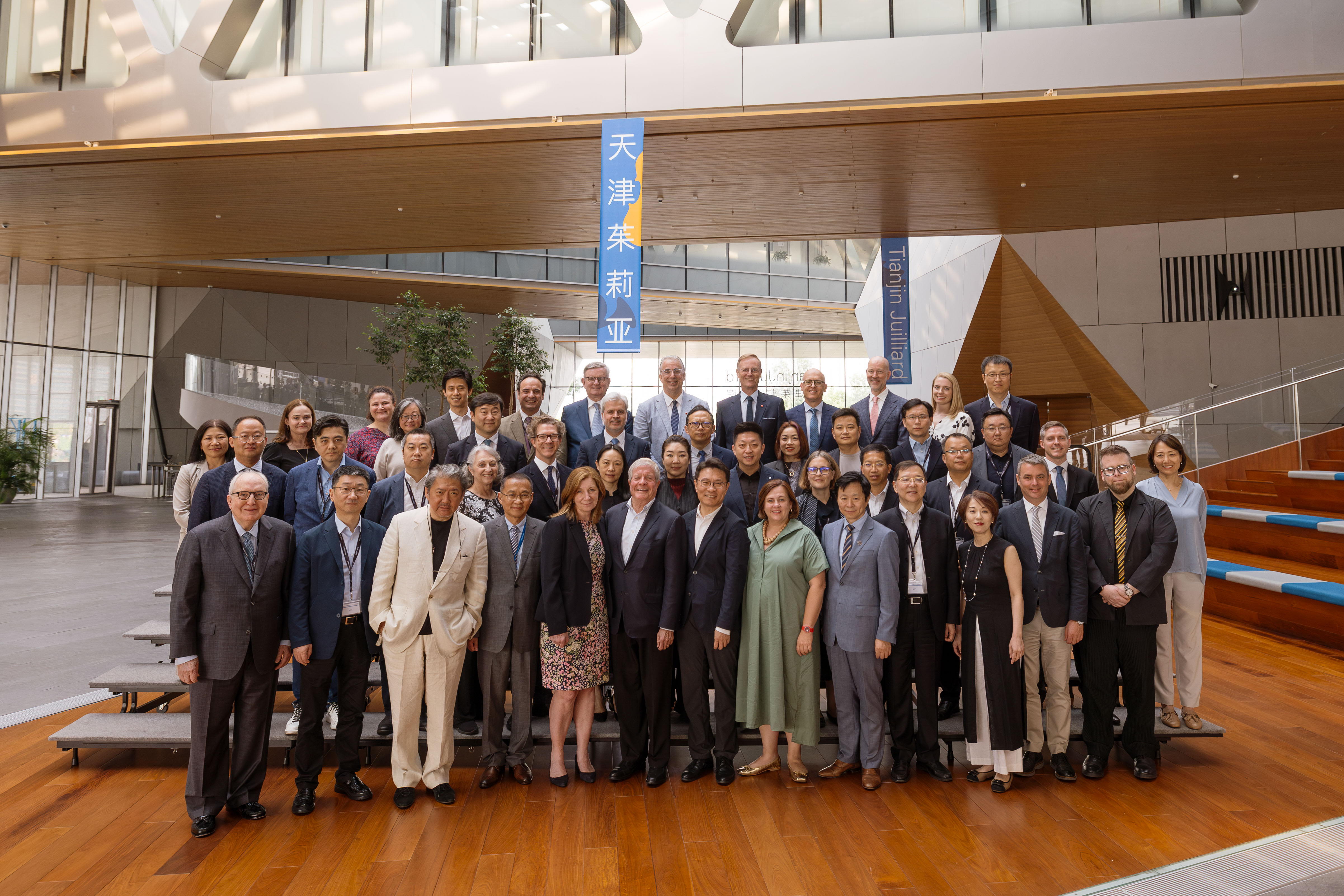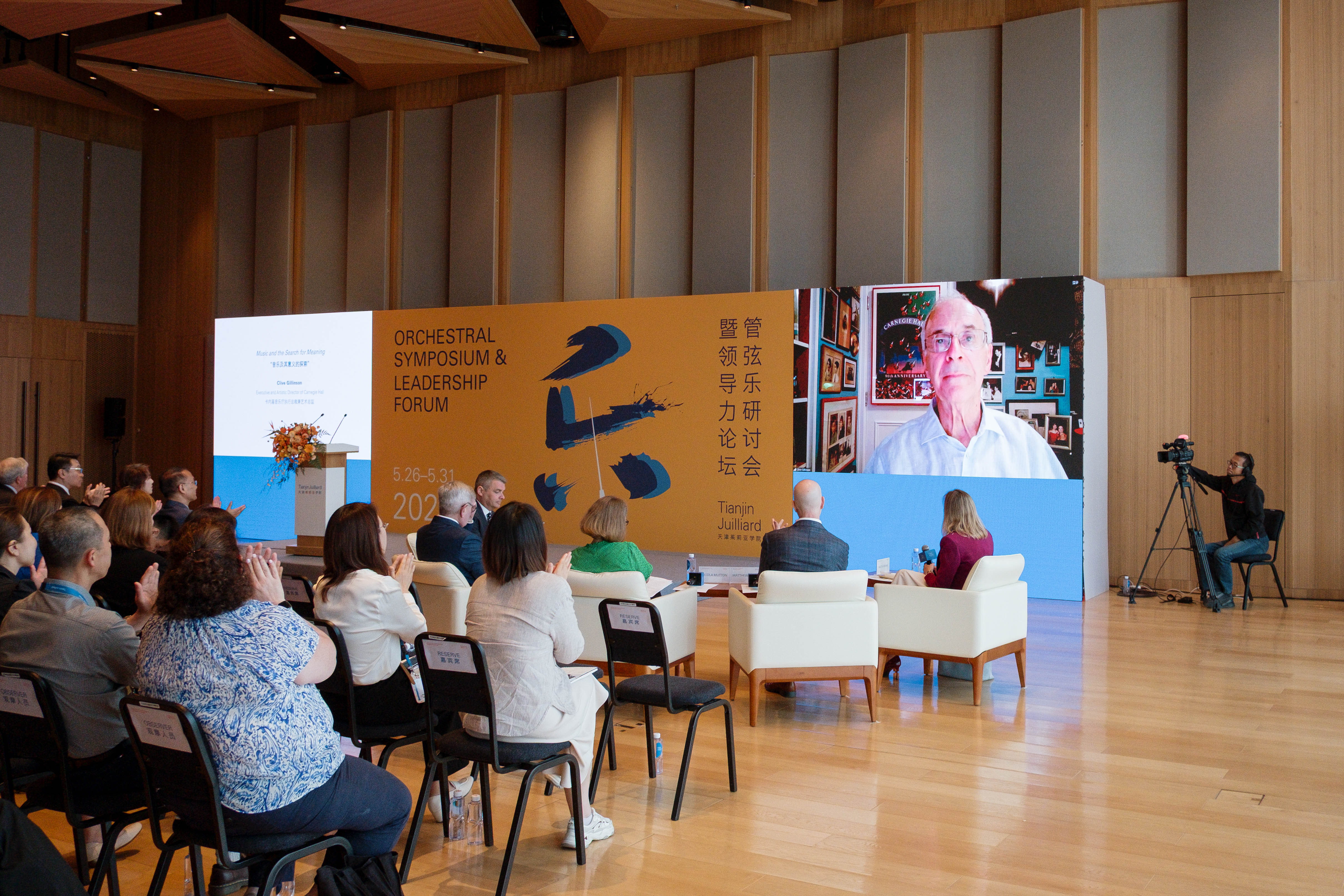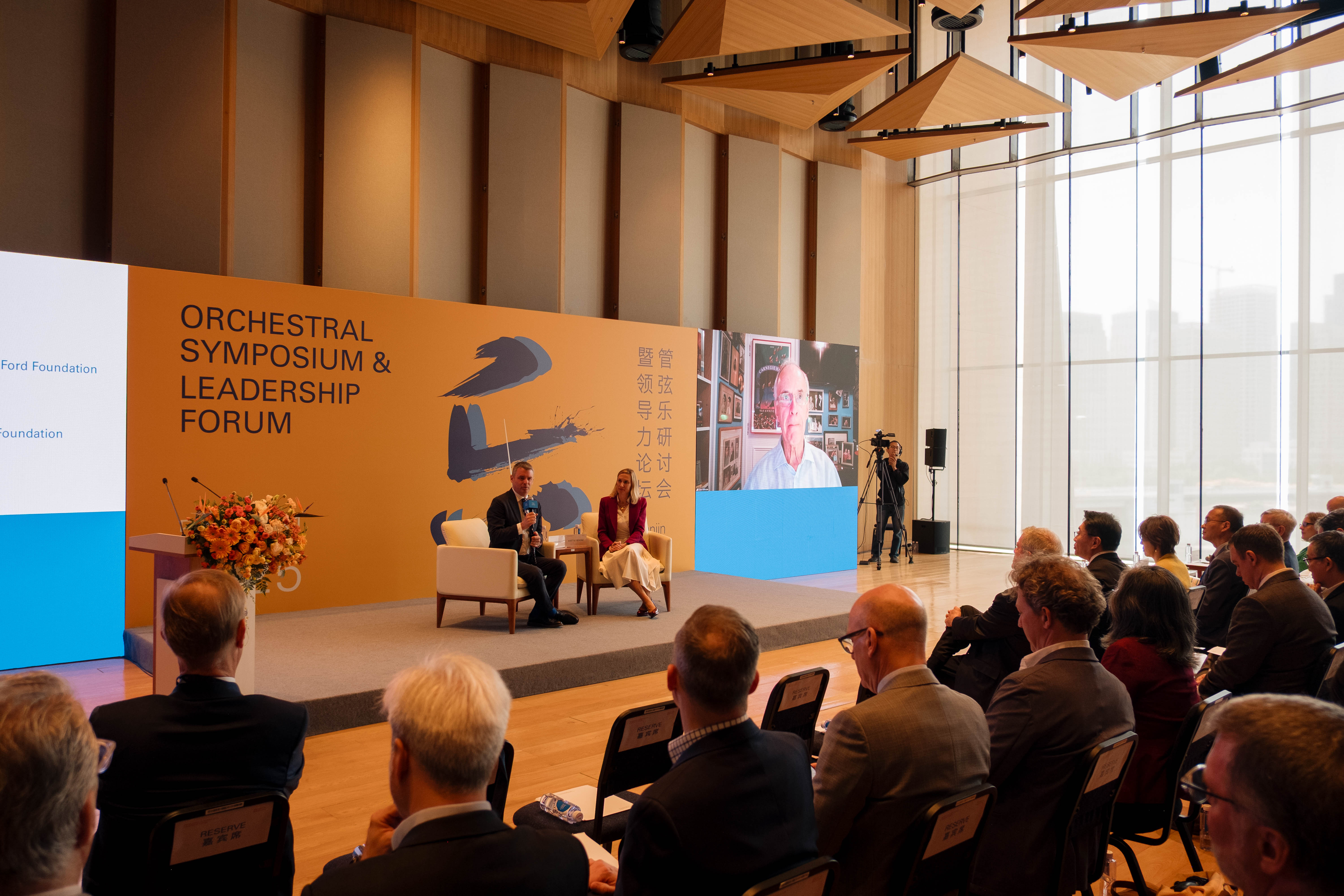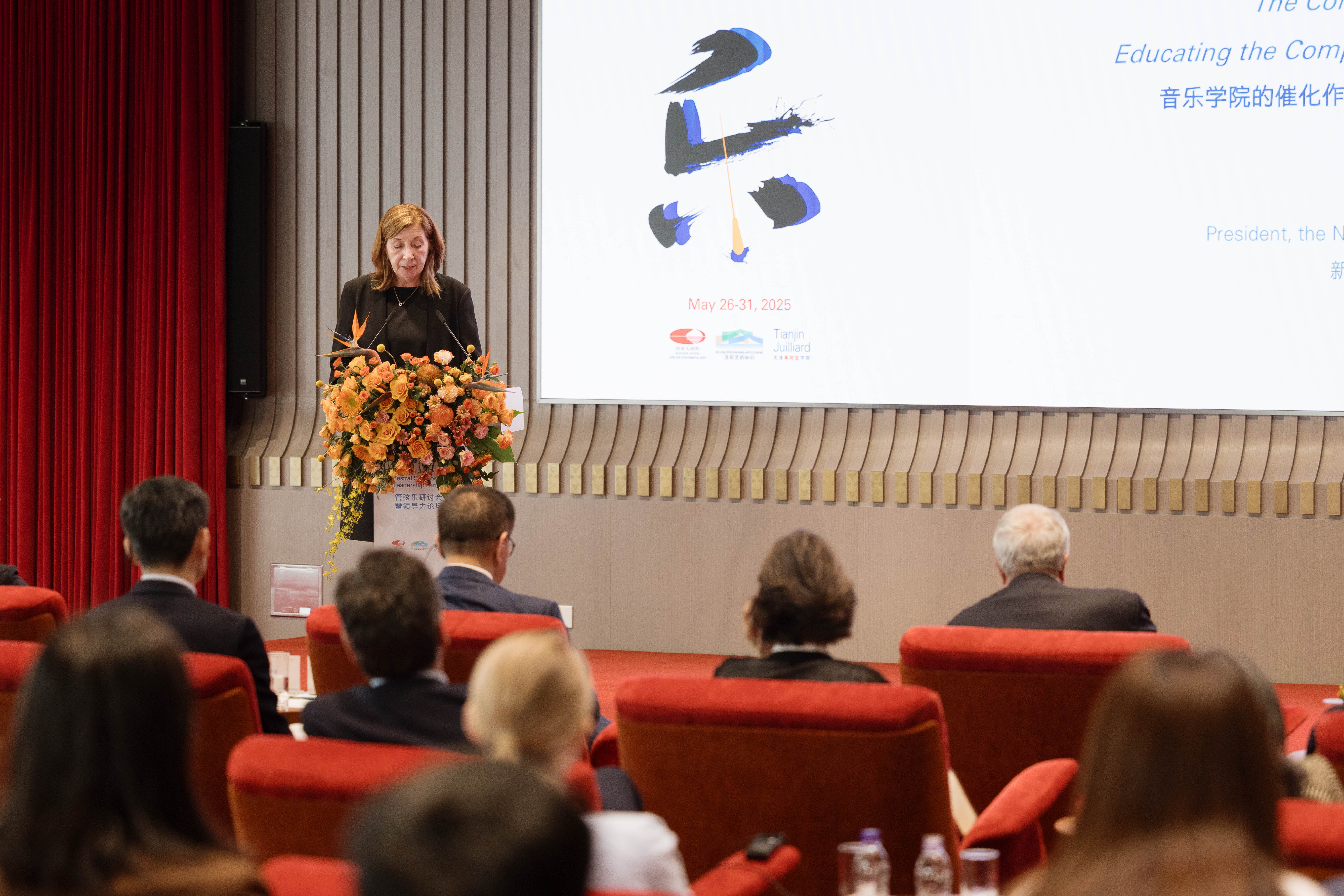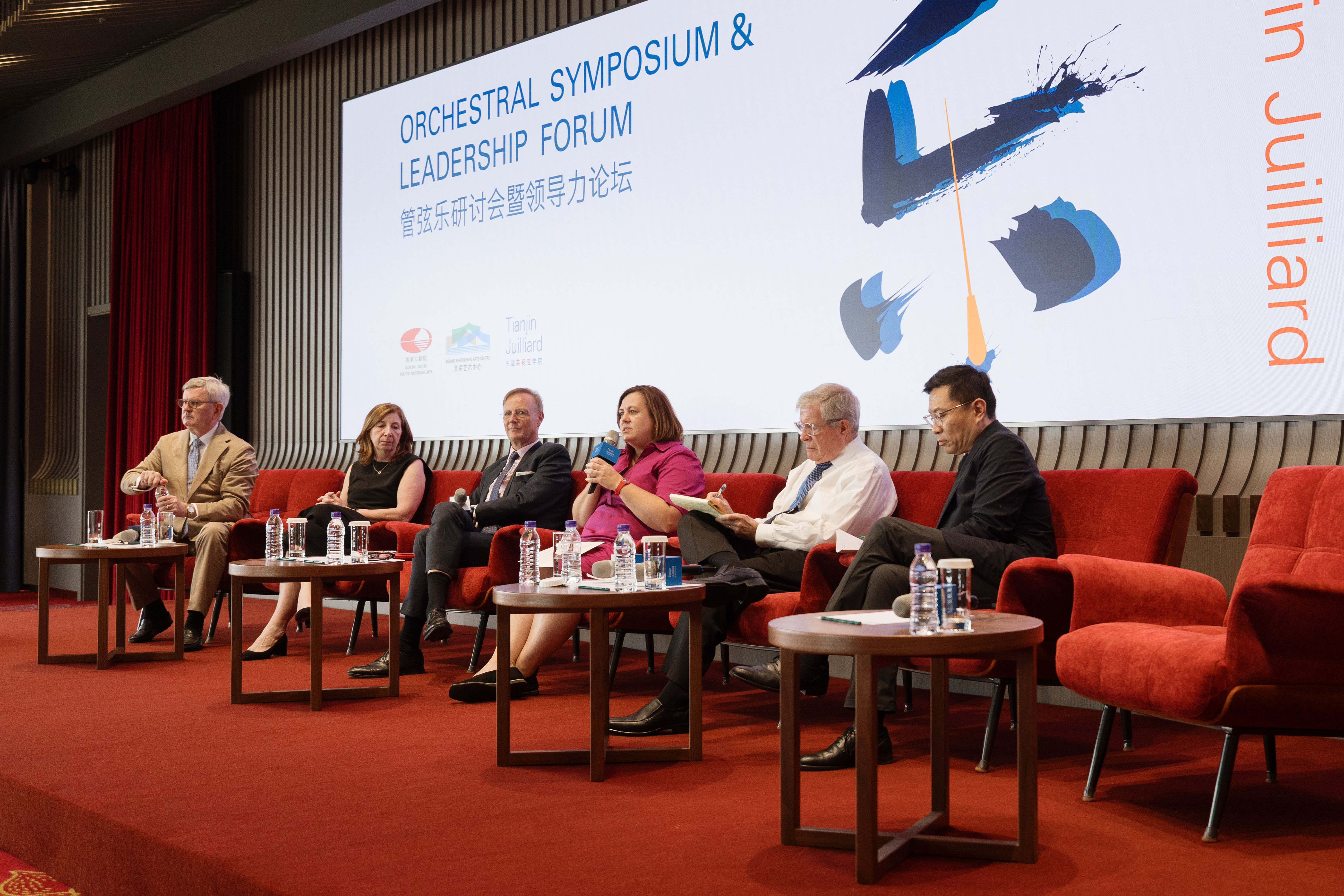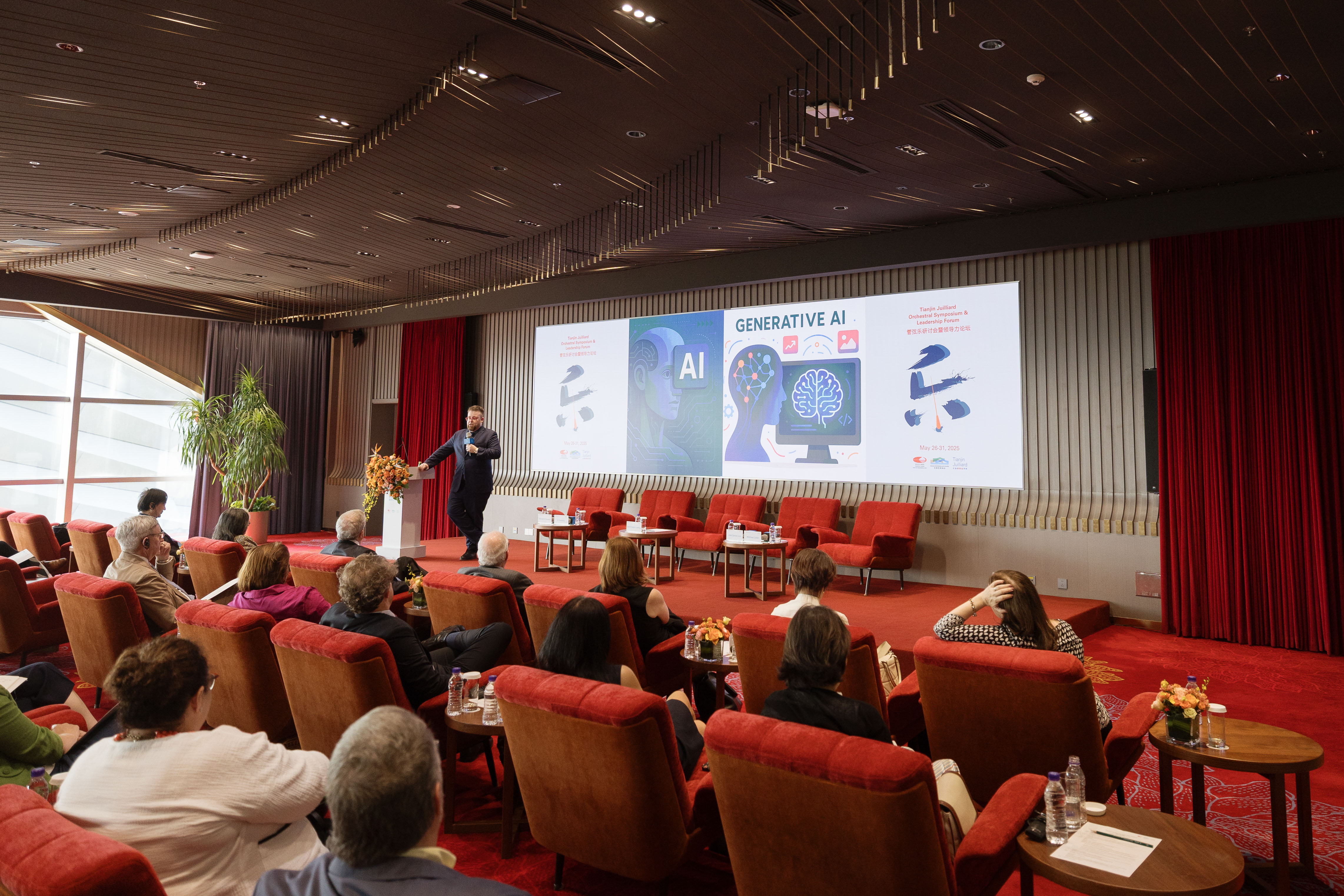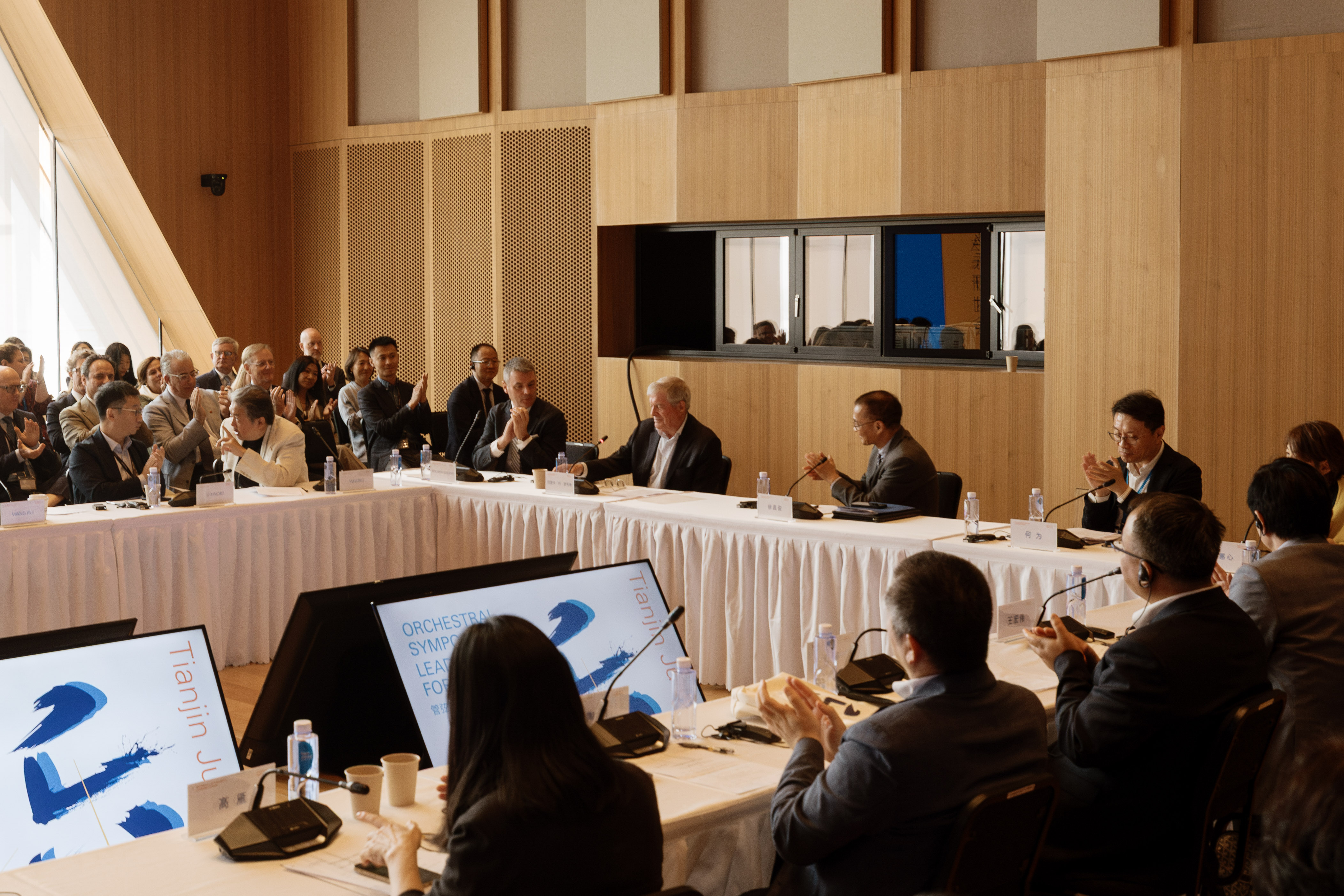In a landmark moment for music education, Tianjin Juilliard brought together arts leaders, visionary educators, and student musicians from 30 leading conservatories, music schools, and organizations from around the world for its first-ever Orchestral Symposium and Leadership Forum this May. While the challenges facing music education are often discussed in the daily work of artists and cultural leaders, this weeklong gathering created a rare space to explore these ideas in practice. The forum addressed urgent issues reshaping classical music, conservatory education, and cultural leadership as well as the artist’s evolving role in a rapidly changing world. “The Global Music Performance and Education Environment: Must the Paradigm Change?” was the overarching agenda.
Clive Gillinson, executive and artistic director of Carnegie Hall, delivered the first keynote address, “Music and the Search for Meaning.” In his speech, Gillinson noted that great artists embody humility, bringing up an anecdote about Mstislav Rostropovich performing a concert in Siberia after the promoter failed to publicize the event. Only eight people managed to learn about the concert and attend, but Rostropovich refused to cancel. He played the entire program, and numerous encores, for an audience of eight. Gillinson asserted that musicians must embody humility and servitude to the art form to thrive in a difficult and competitive professional landscape. In speaking to the responders’ panel, Gillinson asked whether the skill sets that schools provide will broaden and align with students’ opportunities, discussing a fundamental approach to the conservatory model and questioning how much of tradition should be upheld in a rapidly changing industry.
Moderators Mattie Bekink, regional director and chief representative, China, at the Ford Foundation, and Benjamin Sosland (MM ’03, DMA ’08, voice), vice president for music programs at the Kovner Foundation, moderated the conversation between Clive Gillinson, executive and artistic director of Carnegie Hall, and a responders' panel.
The second day of the forum brought the participants to the Beijing Performing Arts Centre, where Andrea Kalyn, president of the New England Conservatory of Music, delivered her keynote address, "Educating the 21st Century Musician.” Echoing Gillinson’s emphasis on matching educational priorities with the professional world, Kalyn pointed out the need to connect skillsets for our students and doing “fewer, bigger things” to foster musical minds.
In responding to Kalyn’s remarks, the participants split into five groups, led by Alexander Brose, president & CEO of The Royal Conservatory of Music, Abra K. Bush, dean of the Indiana University Jacobs School of Music, Lee Cioppa, dean of the Colburn School, José GarcÍa-León, dean of the Yale School of Music, and Sally Takada, associate dean of the Oberlin Conservatory of Music, who returned for a panel discussion to contextualize the breakout sessions.
Later in the day at the Beijing Performing Arts Centre, David Ludwig, dean and director of the Music Division, gave a lecture on “The Future of Tradition: The Promise (and Peril) of AI in Classical Music." The topic of artificial intelligence was raised frequently during the course of the Forum, and Dean Ludwig’s presentation provided context, definitions, and clarity on its utility and limitations as a tool. Dean Ludwig pointed out that “technology is an agent of inclusion,” and also noted that “there is no shortcut to becoming a musician.”
Back in Tianjin, Robert Blocker, William Edward Gilbert professor of piano and former dean of the Yale School of Music, presented the third keynote address, "The Imperative for Cultural Leadership,” calling for the need for cultural leaders to inspire and make an impact in the world by using music and the arts as a means to further dialogue.
A responders’ panel consisting of Iñaki Sandoval, dean of the School of Music of The Hong Kong Academy for Performing Arts, Peter Tornquist, dean of the Yong Siew Toh Conservatory of Music, Richard Kurth, director of the Melbourne Conservatorium of Music, and Kangho Lee, dean of school of music at Korea National University of Arts, responded to Blocker’s keynote address, discussed the role of musicians as facilitators, and the collective responsibility of cultural leadership.
As we conclude the proceedings of the Tianjin Juilliard Orchestral Symposium and Leadership Forum, I want to express my gratitude to the many individuals who participated in an important conversation about the opportunities and challenges facing the art of music around the world. Our discussions and our public concerts in Binhai, Tianjin, and Beijing exemplified the excellence for which we all strive. It is through these people to people exchanges that we as educators and performers can understand each other better and work towards providing the finest musical experiences for citizens around the globe.
Joseph W. Polisi
The third day was dedicated to “Perspectives on Music Education and Performance in China Today.” Leaders from Chinese conservatories presented insights and raised topics for discussion including: the importance of chamber music and orchestra, the holistic development of musicians, a need for career advisement, including orchestral internships to learn the profession. Other topics included trends in contemporary music education, Chinese folk music, cross-disciplinary integration, and technology.
